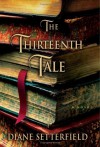The Ocean at the End of the Lane

“But standing in that hallway, it was all coming back to me. Memories were waiting at the edges of things, beckoning to me.”
Perhaps WHAM!'s "Wake Me Up Before You Go-Go" isn't the best background music for writing what feels like a very personal review of a very personal book, but it's what I've got to work with. I'm not sure what I was expecting this cafe to play over their loudspeaker -- friggin' "Carmina Burana"? -- when I'm so obviously having a moment over here, but it wasn't the best of the 80s. On the other hand, since I have one of those pseudo-poetical bullshit souls that make connections between things that are in actuality not connected at all, it kind of feels right that I'm writing about this book -- which is so concerned with memory and childhood -- to what was essentially the music of my own childhood (minus the omnipresence of the Beach Boys -- I had a very Beach Boy filled childhood since my parents are old as fuck). Anyway, I don't think I'm entirely out of place being all sentimental and nostalgic here.
The Ocean at the End of the Lane is a short book, but packs a wallop. Our unnamed narrator (whom I can't help but identify with Gaiman himself) arrives at his childhood home just after attending his father's funeral, and soon makes his way down the lane to the Hempstock farm, where sitting by their pond and drinking tea, memories he hasn't thought of in years begin flooding back to him, memories of a man who stole his family's car, and killed himself in it. His suicide sets off a chain of seemingly insignificant events that brings our narrator into contact with things equally wonderful and frightening.
“Grown-ups don't look like grown-ups on the inside either. Outside, they're big and thoughtless and they always know what they're doing. Inside, they look just like they always have. Like they did when they were your age. Truth is, there aren't any grown-ups. Not one, in the whole wide world.”
I am twenty-eight years old, and I have never felt like an adult. Not once. I wake up every morning, drink my coffee or tea, eat my breakfast, and go to work. I pay my bills. I write thank you notes (although less than I should). I say please and thank you and I try to get along. But inside I feel like I'm just pretending. Inside, I'm still that kid trying to figure out what she wants to be when she grows up. The only difference between myself at twenty-eight and myself at twelve is that it's getting harder and harder to work all the pieces of my life into a cohesive narrative. As a kid, things were bright and sharp and full of wonder, and I remembered all of it all the time. Now, I can barely remember what I had for breakfast, let alone the way it used to feel when it was raining in Arizona when I was eight and I built umbrella bush forts and pretended to make magic potions out of dirt and berries. Everything seemed bigger when I was a kid, and now the world feels small and big at the same time, but not the good kind of big, where you can't wait to see what's next. The bad kind of big where you don't know where to go next and nobody is there telling you what to do and how to do it. Instead, there's the constant feeling of missing something that was never there in the first place.
There's a pond in this book that contains an ocean. This is impossible. This pond is a small thing that secretly contains an infinity, most of which has been forgotten by someone, or everyone, or which is simply too big to hold in one place at the same time. It's really hard to put into words. The bigger the feeling, the harder it is to express it with something as prosaic as language. But then again, that's what the book is for, not this review. When I was finished with it, I immediately got up off my bed, put the book down on my bookshelf, and said, "Huh." I then burst into tears, for no outwardly explainable reason. I'm still not entirely sure of the exact reason, to be honest.
"I do not miss childhood, but I do miss the way I took pleasure in small things, even as greater things crumbled. I could not control the world I was in, could not walk away from the things or people or moments that hurt, but I took joy in the things that made me happy.”
This is not a young adult book, so stop putting it on your YA shelves. This is not a book for a young person to appreciate. A young person would read this book and think, well, yeah, this is how the world works, because they haven't forgotten anything yet. This is a book for adults who have forgotten, not what it was like to be a child, necessarily, but who've forgotten how to get back to that place in your head where ponds can be oceans and magic exists, and there's something more beyond the horizon than your next day at work, the next slog of your increasingly sped up humdrum life.
"Father Figure" is now playing on the overhead, so that's my cue, I think. Lord, what was George Michael thinking.




